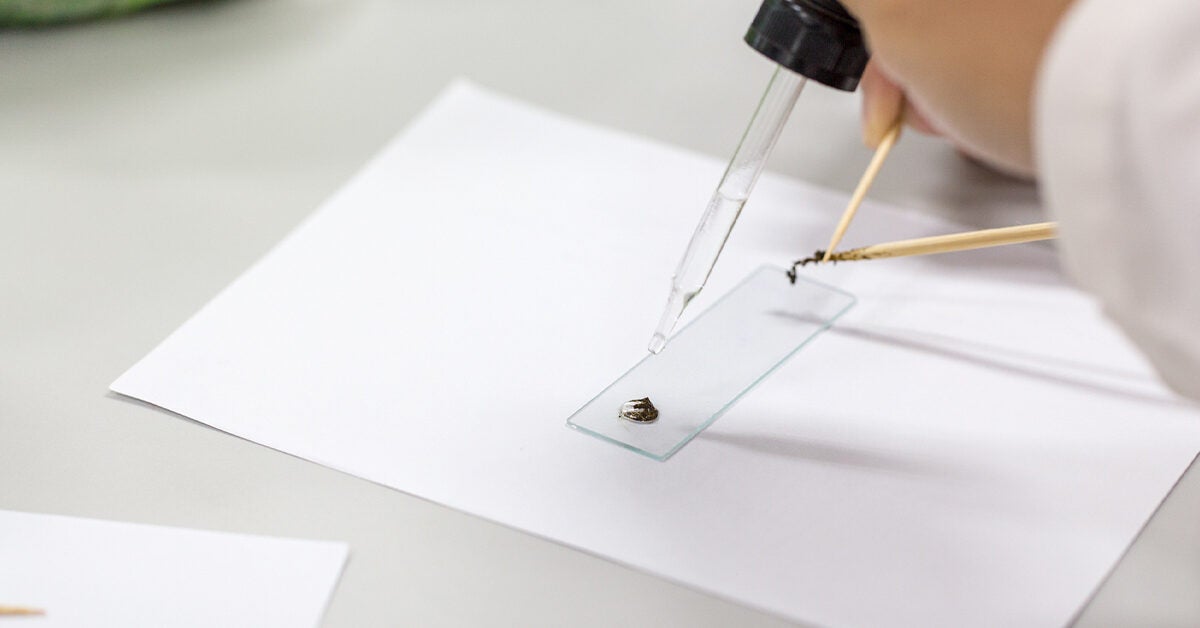Gastroenteritis and Stool Culture: Why It's Needed and How It Helps - Healthline

Gastroenteritis is an intestinal infection that causes symptoms like diarrhea, cramping, abdominal pain, nausea, vomiting, and fever.
Viruses, bacteria, and parasites can cause gastroenteritis. A stool culture can test for the underlying gastroenteritis cause.
Keep reading to find out more about gastroenteritis management and when a doctor may order stool culture testing.
A stool culture involves giving your doctor or healthcare professional a sample of your stool. In order to do this, your doctor, or a nurse at your doctor's office, will give you a special container with a lid. You will then take this container home and collect a sample of your stool according to specific instructions.
Once you have collected the stool sample, you'll take the container to your doctor's office or a laboratory. A laboratory technician will take the stool sample and place it on a special "plate" that can grow bacteria if they are present.
The technician will look under the plate for organism growth and try to identify the bacteria type. They may also look at the stool under a microscope to look for the presence of parasites or eggs a parasite could have laid.
The results of this test aren't always quick. Sometimes, there isn't a lot of bacteria present in your stool and it may take a few days for bacteria to "grow" or show up on the plate. This is why doctors don't often use stool cultures for gastroenteritis.
If your gastroenteritis symptoms are mild, your doctor likely won't order a stool culture.
This is because you'll probably get better in a few days and won't need medical treatment. Often, a stool culture would be an unnecessary test for you to take and for a laboratory to process.
However, in some instances, your doctor will order a stool culture. This may happen if you:
- have symptoms that last more than 1 week
- are over 65 years old
- have a weakened immune system (from another condition or illness)
- have had more than six bowel movements daily and are dehydrated
- show signs of dysentery (bloody diarrhea, fever, abdominal pain)
- have a history of or risk factors for a specific parasite or pathogen
Your doctor may order a stool culture for these or other related reasons.
It's important to keep in mind that a stool culture won't usually help your doctor diagnose gastroenteritis. It can usually be diagnosed based on your symptoms.
Instead, a stool culture helps your doctor determine if there is a bacterial organism causing your symptoms. If no bacteria are present and a separate test shows no signs of parasites, it can be assumed that the symptoms are viral if their duration is less than 2 weeks.
Ideally, a stool culture can help ensure that if you need medication, you will get the type of medication that works for you and the cause of your gastroenteritis.
Stool cultures can help a doctor decide whether to prescribe medication. If the culture points to a virus as the cause of your symptoms, prescribing antibiotics or anti-parasitic medications won't help.
While a technician is performing the stool culture, your doctor may also have ordered additional tests to look for other atypical material in your stool. Examples could include fat, blood, or white blood cells, according to the ACG.
If the test reveals the cause of gastroenteritis to be bacteria or a parasite, your doctor may decide to prescribe medications based on these test results.
If the stool culture test doesn't show bacteria or a parasite as being the cause, your doctor will opt for different treatment options.
Gastroenteritis can cause a number of uncomfortable symptoms, such as:
These symptoms will usually go away or start easing within a few days. However, if your symptoms get worse or persist for more than 2 days, be sure to get medical care.
It's important to get immediate medical care if you have:
- high fever
- black, tarry stools
- stool that contains pus
- stool with bright red blood
- severe abdominal pain
- six or more loose stools a day
- a hard time keeping fluids down
- mental status changes, such as feeling lethargic or confused
Gastroenteritis usually goes away on its own within a few days, without the need for testing or prescription treatments. However, if you have a severe case or prolonged symptoms, your doctor may order stool culture testing.
If a stool culture test determines that the infection is caused by bacteria, your doctor will likely prescribe medications based on these test results.
If you or your child has gastroenteritis, be sure to drink plenty of fluids and get lots of rest. Over-the-counter oral rehydration solutions, such as Pedialyte, can also help replenish lost fluids and electrolytes. If you or your child has any symptoms of dehydration, get immediate medical attention.

Comments
Post a Comment